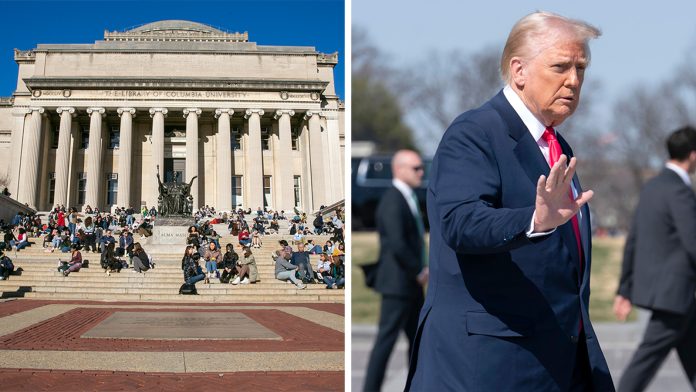
Columbia University has agreed to pay more than $220 million in a settlement with the Trump administration, ending months of tense negotiations and paving the way for the restoration of federal funding to the Ivy League institution.
The agreement resolves multiple federal investigations into Columbia’s alleged violations of anti-discrimination laws. While the university did not admit to any wrongdoing, it will pay $200 million over three years to the U.S. government and an additional $21 million to settle Equal Employment Opportunity Commission (EEOC) investigations related to antisemitism on campus.
In return, the federal government will reinstate the majority of research grants that were frozen or withdrawn in March 2025. Columbia’s access to billions in current and future federal research funding will also be restored.
“This agreement allows Columbia to resume its essential research partnership with the federal government while preserving our independence,” said acting university president Claire Shipman. “It was carefully crafted to protect the values that define us.”
The settlement comes after the federal government suspended $400 million in research funding earlier this year following nationwide scrutiny of how elite universities handled campus protests and allegations of antisemitism. Columbia responded by implementing several policy reforms, including tighter restrictions on demonstrations, revised disciplinary procedures, and a review of its Middle East curriculum.
The deal also includes a provision for an independent monitor to oversee compliance and gives the federal government access to data on Columbia’s hiring and admissions practices. According to a senior White House official, Columbia must conduct a review of regional studies programs, beginning with those focused on the Middle East, and enhance oversight of international student admissions.
Columbia will now be required to share data with the government on applicants’ motivations for studying in the U.S.
US President Donald Trump praised the agreement on Truth Social, thanking Education Secretary Linda McMahon and commending Columbia “for agreeing to do what is right.” He also suggested more universities could soon face similar scrutiny.
“Numerous other higher education institutions that have hurt so many, and been so unfair and unjust, are upcoming,” Trump wrote.
In a message to the Columbia community, Shipman acknowledged the intense financial pressure facing the university, with over $1.3 billion in annual federal funding placed on hold.
“The risk of indefinite suspension, combined with the potential loss of our top scientists, posed an existential threat to Columbia’s future as a leading research institution,” she said.
In an interview with CNN, Shipman emphasized that the decision to settle was driven by long-term concerns.
“We considered litigation but concluded that the damage to our research mission and the risk of severing future ties with the federal government was too great,” she said.
Shipman rejected claims that the university capitulated to political pressure. “This wasn’t a matter of courage versus capitulation. It was about solving a deeply complex problem responsibly,” she added.
The Trump administration is portraying the Columbia settlement as a “roadmap” for other universities. Education Secretary McMahon called it a “seismic shift” in holding institutions accountable for alleged antisemitism and misuse of taxpayer funds.
“These reforms represent a turning point. They reaffirm a commitment to truth-seeking, merit, and civil debate,” McMahon said.
She added that the EEOC settlement is the largest of its kind in nearly two decades and aims to resolve civil rights violations against Jewish faculty and staff following the October 7, 2023, Hamas attacks.
The $200 million payment will go to the U.S. Treasury. A senior administration official said the funds could eventually be reallocated through Congress, with a potential focus on vocational training and apprenticeships.
Shipman described the agreement as a necessary reset for Columbia’s relationship with the federal government, concluding a process marked by months of “deep deliberation” and “word-by-word” negotiations.
The deal was met with cautious optimism from the university’s Jewish community.
“This announcement is an important recognition that antisemitism at Columbia is real and has had a tangible impact on Jewish students,” said Brian Cohen, executive director of Columbia/Barnard Hillel. “I’m hopeful that today’s agreement marks the beginning of real, sustained change.”



